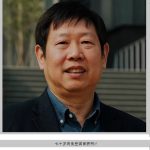January 24, 2018

CLOCKWISE FROM TOP LEFT: SUI MUQING, YU WENSHENG, PENG YONGHE, WANG LONGDE, WANG LIQIAN, LI YUHAN, ZHU SHENGWU, AND WU YOUSHUI.
On Monday evening the Guangzhou-based lawyer Sui Muqing (隋牧青) was notified by his law firm that government officials from the provincial Justice Department would inspect the firm the following morning and that Sui, in particular, must be present. He felt a nervous chill and began to suspect that his communications on a series of human rights cases he has represented had upset high-level officials.
On Tuesday morning (January 23), two officials from the Justice Department arrived, announcing on the spot that Sui’s law license had been revoked. The written announcement cited two incidents as cause of the punishment: that he disrupted court order while defending New Citizen Movement activists on April 8, 2014, by quitting the court in protest; and that he took photos of client Chen Yunfei (陈云飞) against regulations during a meeting.
Sui Muqing himself is one of the lawyers who has been detained and placed under “residential surveillance at a designated place” during the 709 Crackdown in 2015. He and his peers believe the government abruptly revoked his license because he has continued to represent rights lawyers since his release from secret detention in early 2016.
Over the past five years or so, lawyer Sui has defended freedom of expression, religious freedom, and other civil rights in scores of prominent political trials across China, including that of Guo Feixiong (郭飞雄), Ding Jiaxi (丁家喜), Wang Qingying (王清营), Wang Zang (王藏), Huang Wenxun (黄文勋), Chen Yunfei (陈云飞), Huang Qi (黄琦), and others.
Sui is known for his hard work and prolific communication about cases he takes on, and he rarely refrains from expressing his views on politics and the law. He’s also known for his hard-charging style in court. These, we believe, are the real reasons the government is disbarring him.
Sui said he would request a hearing to express his objections against the decision, though he knows it’s unlikely the government will reverse it.
The sudden disbarment marks a new development in a series of detentions and disbarments in recent months, and it appears to be part of a deliberate and determined campaign to remove and deter human rights lawyers.
Last week, on January 15, Beijing-based rights lawyer Yu Wensheng (余文生) was stripped of his license. He believes the decision was retaliation for an open letter he published last October calling the Party’s 19th Congress to impeach Xi Jinping. Yu was detained early Friday morning outside his apartment by a dozen police. Two days prior, he had published an open letter calling for the democratic election of Chinese leaders. In July 2017 he was forced out of his law firm, and attempts to open his own firm have been blocked.
In the same week, Shanghai-based lawyer Peng Yonghe (彭永和) lost his law license for demanding financial transparency from the Shanghai Lawyers Association and for a letter he was involved in calling for the crime of subversion of state power to be abolished.
In December, 2017, the Yunnan provincial Justice Department revoked the licenses of lawyers Wang Liqian (王理乾) and Wang Longde (王龙得). For years the two had fought hard for their right to meet clients under judicially-stipulated conditions. They also challenged the legitimacy of the local Lawyers Association, which amasses large fees from members but seldom defends their rights.
On October 31, 2017, lawyer Li Yuhan (李昱函), who represented 709 lawyer Wang Yu, was detained in Shenyang on unclear charges.
Also in October, another lawyer in Changsha, Wen Donghai (文东海) was placed “under investigation” for “seriously disrupting court order.” He also faces disbarment. Wen Donghai also represented Wang Yu, and Li and Wen visited Wang Yu in July 2017, providing the first update to the outside world on the first 709 detainee.
In September 2017, Shandong lawyer Zhu Shengwu (祝圣武)’s license was revoked for defending a man who made disparaging comments about Xi Jinping on WeChat.
Also in December 2017, by the recommendation of the Hangzhou Lawyers Association, lawyer Wu Youshui (吴有水) was given a nine month administrative penalty for online expressions that “belittle and attack the Communist Party and the socialist system, and negate the political, judicial and management mechanisms of lawyers stipulated by the constitution…”
In September, 2016, lawyer Li Jinxing (李金星) was suspended for one year for defending political prisoner Guo Feixiong.
Human rights lawyers across China are regularly summoned by provincial and local Justice Departments, who issue receive warnings and threats. The regime’s Justice Departments at all levels have an office that “manages” lawyers. Lawyers go through a mandatory annual review by the departments, which renew their licenses — a mechanism designed to keep lawyers on a short leash and ensure they submit to the state, lest they lose their livelihoods.
Lawyers associations are another tool that maintains tight control over lawyers: they are run by lawyers trusted by the government, and frequently recommend punishment for their colleagues who take on human rights cases.
In China two years after the 709 Crackdown, the legal climate has severely deteriorated; the government is determined to either root out human rights lawyers or force them into submission.
Chinese Minister of Justice Zhang Jun (张军) spoke at a national forum on lawyers in early January. He didn’t use the term “human rights lawyers,” but when he spoke of the “few bad ones,” they were who he meant: “punishment and criticism must be further carried out. We must proactively take measures against the few bad ones in the legal profession, using it as an example for others and maintaining the overall interest and image of the profession. In this regard, some of our lawyers associations and Justice Departments have not done a good job.”
He emphasized that lawyers must be subject to the leadership of the Party, and support “the socialist system.”












